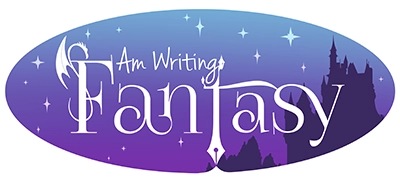What makes a good novel beginning?
How do you capture a reader’s (or agent’s) attention? How much detail should you have before it becomes too much?Working on slides for my writing course got me really thinking about the beginning of novels. Everyone says they are important. You have a page to hook a reader, less to interest an agent. There is lots of generic advice: start with action, have a killer opening line, open with a hook, write a compelling character.
Great. But how do you actually do any of that?
I’ve been outlining lots of great strategies, but the one I want to focus on for this post is information. Specifically, how much backstory, world building, or character description should be in those first few chapters – and how do you incorporate it?
If you haven’t guessed, the answer to the first question is minimal.
But what is minimal backstory? A good benchmark is only as much information as is needed to allow the reader not to be entirely lost but enough to keep them curious.
That means no major expositions on the history of the province, how the world was conquered and peoples subjugated, or all theories on how magic works. All places have history. But to start off you can just say “enslaved people,” and magic just works (okay, possibly you need a wand, materials, or not). No information dumps.
You have the entire novel to share the details with a reader. If you can get them to read that far. Your goal in the opening chapters (pages) is to get them to want to read more. So don’t bore with unneeded information that has nothing to do with the active plot of the story.
Active plot? What is that?
It is what the main character(s) are doing, about to do, or is being done to them. Pare the narrative down to that. If a character is about to reach for a handful of powder to throw at an assailant because the attacker is really a demon and the powder was blessed by a monk, you probably need to weave that in. But don’t say it.
Remember “show, don’t tell.”
This is especially true during the first pages of the novel. It will keep you (mostly) from information dumps. If you are in one character’s POV, it is especially easy. In the above example it could be: “As the demon possessing Zeke broke through the door, Caitlyn grabbed a handful of blessed myrrh.”That is it. No explaining of how or why Zeke is possessed, the relationship between Caitlyn and Zeke, or who blessed the myrrh. Those are the mysteries that make you wonder. And hopefully keep reading.
Think of it as the reader should experience the world through the character. So if the detail isn’t something related to what the character is doing, seeing, smelling or such, the reader doesn’t need the information at this moment.
But don’t cheat!
Sure the character’s eyes could slide past the crumbled castle and think of his ancestors who once ruled there as he walks out to muck a stable. If you stop the memory there, you are probably good. If you decide to have the character remember the historic details of the war that cast his family from power and a brief history of the usurper … well you just stepped in an information dump. Too much, too soon when the reader doesn’t even care about the main character much less his forgotten ancestors!
Work on having the reader care about the main character, not the world.
However, don’t assume your readers will know all the details to the world you are creating either.
This is the opposite side of the coin and a tendency I’ve run into in fantasy on several occasions. A world is based on Tolkien or other popular fantasy like Dungeons and Dragons. There are elves and trolls and dwarves and bugbears. What the heck are bugbears?
I had to Google them (thank you Wikipedia!). It turns out they are a form of goblin. But that is my point, I had to leave the story and do some research because it has been decades since I read any of the Dungeons and Dragons or Tolkien. Now I have to assume the author is using the same bugbear that I discovered. It would have been easier if the author had simply given me a quick description of sharp tusks, oddly colored skin, and a smell that would sicken a zombie.
Keep it sparse and specific!
Also do not assume your reader is a certain ethnicity with a specific background and will understand the story your are writing like they were your best friend in high school. Add in enough details that anyone could understand what you are describing. Within reason, assume they live on planet earth and have some sort of familiarity with your genre. A bit, but not expert level.
This leads brilliantly into character descriptions.
You do need to describe your characters, but like everything you only need to describe the most pertinent aspects and not every detail. Though I have done that when a rather lecherous character was introduced to a very comely young woman. He noticed just about every detail down to the lace of her bodice. But in that case, it worked. There are counterexamples to everything!
Hair color, or eye and skin tone, definitely gender or alien race. If a character has a scar or is missing an eye, those are the unique aspects that set her or him apart. Mention it. If the main character meets someone, then a quick description is fairly easy.
The tricky part is describing the main character. Without looking in a mirror. Don’t look in a mirror to have the character describe themselves. Please. It’s been done. A lot. Avoid it.
So how else to describe the main character?
The reader will catch gender based on the pronouns you use. Other aspects … height can come from being able to reach, or not reach, an object. Or maybe they prefer a short sword because the point of a long sword drags on the ground. Perhaps they choose a shirt or flower because it matches their eyes? Or they can simply brush strands of brown hair out of their eyes. Be clever. Throw in the details sparingly and in such a way the reader doesn’t even realize you are feeding them information on the world.
If you can do that, you are all set for writing an opening that won’t bog down a reader’s interest. And probably set to write a whole novel!
What else about novel beginnings do you want to know? Let me know in the comments!











I admit that starting a novel or other creative work has always been a challenge for me, so thanks for the tips here! I think you’re really onto something with the idea of keeping the opening scene down to sensory input, making the reader stay ‘in the moment’ rather than trying to shove the past into them. I’ve come to start thinking of the opening scene or two as the ‘baseline’ of the story. Whatever the reader reads first will be what they think they’ll be in for, so if you open up with a lot of exposition, they’ll think that’s what awaits them. Conversely, if you bring in something immediate and gripping, they’ll expect a lot more of that.
It’s also kind of funny that you bring it up now, since a friend of mine sent me a novel to read and check on, and the very opening section was a description of the different races and history. Never in my life has it been so much of a challenge to keep going!
…actually, thinking about it, that might well be the reason that novels starting with exposition or world/character-building tend to be a harder read. When you first open a novel, you’re wanting to enjoy something, kind of like a race or starting a journey. Beginning that with exposition is kind of like the car being stuck in the mud at the very beginning. Sure, if you keep going, things will eventually pick up, but it’s still kind of frustrating and you’re still not going anywhere.
Long story short, great advice, and I’ll certainly be keeping it in mind for my works!